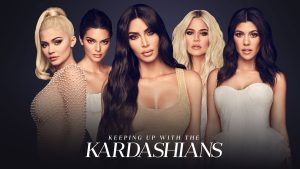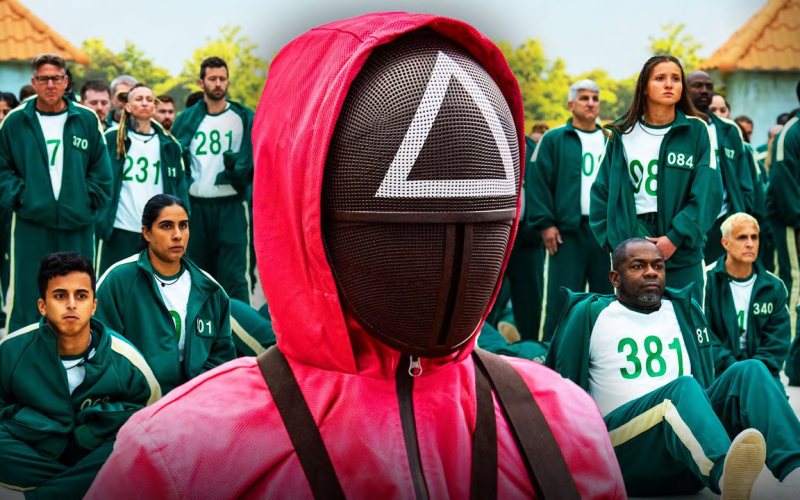Introduction
Reality TV has become one of the most popular and influential types of television in the world. Over the years, it has grown from a simple idea into a huge part of our culture. From showing everyday people to creating global superstars, reality TV has changed how we watch TV, how we view celebrities, and how we talk about social issues. In this article, we will look at how Reality TV Impact began, how it grew over the years, and how it has affected culture and society.
The Start of Reality TV: The 1990s

Reality TV started in the early 1990s with shows like The Real World on MTV, which first aired in 1992. This show was different from anything people had seen before. It showed real people living together and interacting, with no scripts or plans. People were curious about seeing how normal people would behave in unusual situations.
The Real World became a big hit because it felt like a window into the lives of others. Viewers enjoyed seeing how real people from different backgrounds reacted to each other. This show sparked the start of many similar programs, creating the first wave of reality TV.
The Rise of Competition Reality Shows: The Early 2000s

In the early 2000s, reality TV became even more exciting with competition-based shows. Programs like Survivor, Big Brother, and American Idol introduced a new format where contestants competed for prizes or fame. These shows quickly became popular because they combined drama with suspense.
Viewers loved not knowing who would win or who would be eliminated next. The idea of competition made the shows even more thrilling, and audiences got hooked on the drama. These shows also appealed to a wide range of people by including different types of competition, from survival challenges to talent shows.
Reality TV Explosion: The 2010s and Beyond

By the 2010s, Reality TV Impact was everywhere. It wasn’t just about competition anymore; it had grown to include shows about dating, family life, cooking, and more. Shows like The Bachelor, Keeping Up with the Kardashians, The Voice, and Shark Tank became massive hits.
The rise of social media helped reality TV grow even faster. Platforms like Twitter, Instagram, and YouTube allowed fans to connect with their favorite stars and talk about shows in real-time. Reality TV was no longer just something you watched on TV; it became an interactive experience where fans could be a part of the conversation.
The Role of Reality TV in Culture
Reality TV plays a huge role in shaping modern culture. It has influenced the way we view fame and success, creating a new type of celebrity who is famous for being themselves. It has also made it easier for diverse groups of people to be represented in the media. Reality TV shows often break cultural norms, helping to challenge stereotypes and spark important discussions about societal values.
Reality TV and Celebrity Culture

One of the biggest changes brought by Reality TV Impact is how it has shaped celebrity culture. In the past, celebrities became famous because of their talents or achievements. But reality TV introduced a new kind of celebrity: people who became famous because they were entertaining to watch.
For example, the Kardashian family became global superstars through their reality show, Keeping Up with the Kardashians. They didn’t rise to fame through acting or singing, but by simply sharing their lives on TV. Today, many reality stars use social media to build their personal brands and stay in the public eye. Reality TV has created a new type of celebrity: the one who gains fame by being themselves, not by having a specific skill.
The Dark Side of Reality TV
Even though reality TV is very popular, it has faced its fair share of criticism. Some people believe that these shows create negative stereotypes, set unrealistic beauty standards, and encourage bad behavior. Shows often exaggerate drama or conflicts to make them more exciting, which can mislead viewers into thinking that’s how real life works.
Another concern is the toll reality TV can take on the stars themselves. Many reality TV stars have spoken out about the mental and emotional struggles they face after becoming famous. Constant public attention, online bullying, and pressure to maintain a certain image can have serious effects on mental health. As reality TV continues to grow, many believe it’s important for the people behind the shows to take better care of the contestants’ well-being.
Reality TV’s Global Impact

The influence of Reality TV Impact is not limited to just one country. Shows like The Voice, Big Brother, and Survivor have been adapted in countries all over the world. This global reach means that reality TV can connect people from different cultures and backgrounds through shared entertainment.
Reality TV also plays an important role in addressing social issues. For example, shows like RuPaul’s Drag Race and The Bachelor have brought attention to LGBTQ+ rights and racial diversity. These shows have helped spark conversations about topics like acceptance and equality. Reality TV often tackles important issues in a way that is accessible and engaging for a wide audience.
Reality TV’s Impact on Relationships

Reality TV often features relationships, whether it’s contestants falling in love on a dating show like The Bachelor, or families navigating drama in shows like Keeping Up with the Kardashians. These portrayals of relationships can affect how viewers think about love, friendships, and family life. Sometimes, people may expect real-life relationships to match what they see on TV, which can lead to unrealistic expectations. However, reality TV also helps people talk openly about their own relationships, which can encourage important discussions.
The Influence of Reality TV on Advertising

Reality TV shows have become major platforms for advertising. Companies often use these shows to promote products through product placements. For example, you might see contestants on Survivor using a specific brand of food or drink, or reality stars on The Kardashians wearing certain clothing brands. This type of advertising is effective because viewers trust reality stars and often want to buy the products they see on screen. Reality TV has created a unique space where advertising blends with entertainment.
Reality TV and Social Issues

Many reality TV shows are known for addressing social issues. For instance, The Challenge often shows the diversity of its contestants and discusses issues like mental health, relationships, and racism. Shows like RuPaul’s Drag Race bring attention to LGBTQ+ rights, helping to create a more inclusive culture. These discussions can make viewers more aware of the challenges faced by different communities and encourage them to think more critically about the world around them.
The Popularity of Reality TV Competitions

Competition-based reality shows have become some of the most popular types of Reality TV Impact. Shows like The Voice, America’s Got Talent, and The Bachelor offer a unique mix of entertainment and suspense, as viewers watch contestants compete for a prize or a chance at fame. These shows often focus on talent, charisma, or even endurance, keeping audiences engaged throughout the competition. They are successful because viewers love to pick favorites, root for contestants, and feel a personal connection to the show.
Reality TV and Viewer Participation
A big part of reality TV’s success is the way it involves viewers. Many shows now allow fans to vote for their favorite contestants, influencing the outcome of the show. This gives viewers a sense of control and makes them feel like they are a part of the experience. Whether it’s voting for a contestant on American Idol or choosing the next winner of The Voice, audience participation has become an important part of reality TV. This interactive element has helped keep reality TV fresh and exciting.
Challenges of Reality TV
Despite its success, reality TV faces many challenges. Many critics argue that these shows can promote negative behaviors, such as dishonesty or aggression, for the sake of drama. Additionally, some reality TV stars experience difficulties after their shows, such as dealing with the pressure of public attention and online criticism. The ethical concerns about how contestants are treated during and after filming also raise questions about the impact on their mental health.
The Future of Reality TV

The future of reality TV looks bright, as new technology and streaming platforms continue to grow. We are likely to see more interactive formats, where viewers can influence the outcomes of shows. Additionally, Reality TV Impact will continue to evolve with more diverse voices and stories. With the rise of social media, reality TV will remain an important tool for connecting audiences with celebrities and creating global conversations.
What’s Next for Reality TV?
Looking ahead, reality TV will likely continue to grow and evolve. With the rise of streaming platforms like Netflix, Amazon Prime, and Hulu, people now have more access to reality TV than ever before. New types of reality shows, such as live-streamed events and interactive TV, are pushing the boundaries of what we thought reality TV could be.
Additionally, we’re seeing a blending of reality TV with scripted TV. Some shows are mixing elements of both, creating new ways to tell stories. This mix of genres shows that reality TV will keep changing and evolving in exciting ways.
Analysis Table: Evolution of Reality TV
| Era | Key Features | Popular Shows | Why It Worked |
|---|---|---|---|
| 1990s | Introduction of unscripted content | The Real World | Real people in real situations |
| Early 2000s | Competition-based formats | Survivor, Big Brother | Drama and suspense from competition |
| 2010s | More variety in formats, celebrity focus | The Bachelor, The Kardashians | Celebrity-driven, social media interaction |
| 2020s | Global reach, focus on diversity | RuPaul’s Drag Race, The Circle | Cultural relevance, global appeal |
Comparative Table: Reality TV vs Traditional TV
| Feature | Reality TV | Traditional TV |
|---|---|---|
| Content | Real people, unscripted scenarios | Scripted stories with actors |
| Fame | Celebrities through exposure | Celebrities through talent |
| Viewer Involvement | Fans engage with contestants online | Limited fan interaction |
| Cultural Impact | Shaped social trends and issues | Less influence on culture |
| Appeal | Broad, across demographics | Specific to genres or interests |
Conclusion
In conclusion, reality TV has become a major part of modern entertainment. It started as a new and fresh way to watch real people in action, and it continues to grow. While it has benefits like giving people a chance to become famous and entertaining millions of viewers, it also has challenges like the pressure it puts on contestants and its sometimes unfair portrayal of events. As it moves into the future, reality TV will likely keep changing with new technology and formats. Its global popularity and ability to reflect society’s values show that reality TV is here to stay.











